Dr. Mary Richter
The Dr. Mary Miller Richter Awards are presented each year to honor one school and one district that exemplify the ideals, principles, and practices of positive behavior support. The award recipients demonstrate a firm commitment to improving the lives of students, the educators who teach them, and the community in which the school resides through innovation, creativity, and/or a firm commitment in staying the course despite barriers. Regional consultants, district leadership personnel, and school SW-PBS teams are encouraged to nominate deserving schools and/or districts. All active participating schools and districts, regardless of the tier at which they implement, are eligible for these awards.
Dr. Mary Miller Richter passed away in June, 2014. She is greatly missed by all who knew her.
In honor of Mary Richter, Ph.D., Missouri’s founding Director of the Schoolwide Positive Behavior Support (SW-PBS) initiative, one school and one school district will be honored annually that exemplify the ideals, principles, and practices of positive behavior support. An award committee comprised of SW-PBS associates from the University of Missouri Center for SW-PBS will review nominations and present the awards at the Summer Institute. Students, parents or community members, SW-PBS Consultants, school or district leadership, and school or district SW-PBS teams are encouraged to nominate deserving schools and districts. The award recipients will demonstrate a firm commitment and dedication to improving the lives of students, the educators who teach them, and the community in which the school or district resides through innovation, creativity, and/or a firm commitment in staying the course despite barriers. All actively participating schools and districts, regardless of level of implementation, are eligible for the Award.
Nominations should include the following:
- A nomination letter explaining why the school or district meets the spirit and intent of the award, including supporting examples (e.g., student outcome data, other notes of distinction, implementation innovations).
- 1-4 additional letters of support from a cross-representation of stakeholders (e.g., community members, school or district leadership, parents, students).
- 1-5 images (sent as individual image files) that illustrate the spirit of the SW-PBS implementation in the nominated school or district.
In addition, we ask that nominees complete the school or district nomination form, linked below. This form asks for demographic information about the school or district that we will use to promote the winners on our website, in newsletter articles, and on social media posts. You may use the school and district practice applications, linked below, to help you gather the demographic information needed for the nomination forms:
School Practice Nomination Form
District Practice Nomination Form
Nomination letter, and supporting letters (maximum of five documents) and up to five attached image files can be submitted through the nomination forms, linked on the school and district nomination buttons, below (preferred). Alternatively, you may email letters, pictures and a completed practice application to moswpbs@missouri.edu. Nominations and supporting documents are due April 15.
Congratulations to the 2025 Dr. Mary Miller Richter Districts and School of Distinction Award Recipients!
In 2025, 13 schools and 2 district were nominated for the Dr. Mary Miller-Richter school and district of distinction. The nomination packets were evaluated by the MU Center on Schoolwide Positive Behavior Support. This year’s nominees were particularly highly qualified, and the judges could not narrow their choice down to one school. As a result, both Coverdell Elementary and Excelsior Middle were awarded the Mary Miller Richter School of Distinction Award for 2025. All schools and the district that were nominated were deserving of recognition. For a complete list of the nominees, click on link.
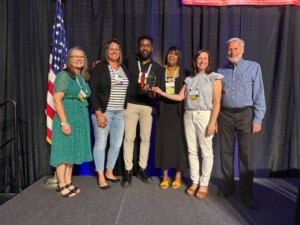
FERGUSON FLORISSANT R-II SCHOOL DISTRICT
The Ferguson-Florissant School District in St. Louis, Missouri serves 9,500 PK–12 students across 23 schools and has a 2 decade commitment to Positive Behavioral Interventions and Supports (PBIS). Three years ago, the district restructured its PBIS Core Team into a broader Multi-Tiered Systems of Support (MTSS) District Leadership Team (DLT), shifting from isolated school-based PBIS efforts to a district-wide, whole-child approach.
A major milestone was the creation of an 80+ page MTSS Comprehensive Guide outlining academic, behavioral, and social-emotional supports across all three tiers. This guide informed school-level handbooks and revealed gaps, especially in Tier 2 interventions.
Implementing MTSS, particularly at the secondary level, has been challenging. The DLT emphasizes consistent adult behavior, distributed leadership, and the importance of establishing clear expectations for students and staff. The current focus is on strengthening school-based teaming and coaching across all MTSS tiers, improving data use, communication, and stakeholder feedback loops. The district is also expanding physical and mental wellness efforts, launching a new PK–12 SEL curriculum, and reinforcing Restorative Practices to reduce disciplinary disparities.
DLT established a mindset that there is no reason MTSS can’t be effective if the adults in each building understand that: “as a district, we are establishing clear expectations for students and staff around safety and behavior, and we are acknowledging students for meeting those expectations.” Ferguson-Florissant remains committed to equity through MTSS, ensuring every student receives the support they need to succeed in safe and connected learning environments.
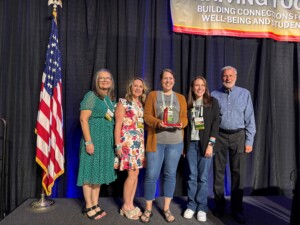
EXCELSIOR SPRINGS MIDDLE
Excelsior Springs Middle School, Excelsior Springs School District is an Rural school located in Excelsior Springs, Missouri. With 3 administrators, 41 teachers they support 542 students. ESMS has earned multi-year MO SW-PBS Recognition. Since restarting its PBIS journey in 2021, ESMS has undergone a powerful transformation, overcoming a history of low expectations, discipline issues, and negative culture. Inspired by the 2024 MO SW-PBS conference, administrators and teachers collaboratively designed a customized PBIS framework tailored to their students’ needs, leading to the creation of Tiger Dens—cross-grade house groups that foster connection, reduce stress, and reinforce expectations through student-led activities and friendly competition. Weekly Den meetings and data tracking via LiveSchool have made behavior improvement engaging and meaningful. Strategic leadership, ongoing PD such as “Lunch and Learn,” and data-based decision-making have driven dramatic improvements: ODRs dropped from 180 to 55 in just one month, fights fell from 80 to fewer than 15 in a year, and targeted interventions reduced post-lunch referrals by 25% in three weeks. With school spirit and culture revitalized, ESMS has become a place of joy, growth, and meaningful change—impacting students now and building a stronger future community.
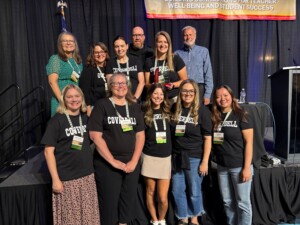
COVERDELL ELEMENTARY
Coverdell Elementary, City of St Charles School District is a Suburban school located in St Charles, Missouri. With 1.5 administrators, 33 teachers serving 293 students. Coverdell has earned multi-year MO SW-PBS Recognition. Since adopting PBIS in 2019, Coverdell Elementary has transformed from a school struggling with frequent office referrals and unclear expectations to a thriving, data-driven community with clear systems and a positive climate. Disrespect referrals dropped from 39 to just 5 annually. A strong PBIS foundation across all three tiers has empowered staff, increased student engagement, and strengthened family involvement. Innovative programs like student-led Bootcamps, an Amazon-style school store, Vibe Tribes vertical grade teams, and the monthly schoolwide Chief-Xperiences enrich the school culture, while PBIS Family Nights foster consistency between home and school. Tiered supports like Check-In/Check-Out have reduced behavior issues by 25% within six weeks for the targeted students. Ongoing data analysis and feedback ensure continued growth, with PBIS deeply embedded in daily life and helping students internalize values of being safe, respectful, and responsible both in and beyond school.
Congratulations to the 2024 Dr. Mary Miller Richter Districts and School of Distinction Award Recipients!
In 2024, 12 schools and 1 district were nominated for the Dr. Mary Miller-Richter school and district of distinction. The nomination packets were evaluated by the MU Center on Schoolwide Positive Behavior Support. This year’s nominees were particularly highly qualified. All schools and the district that were nominated were deserving of recognition. For a complete list of the nominees, click on the press release.
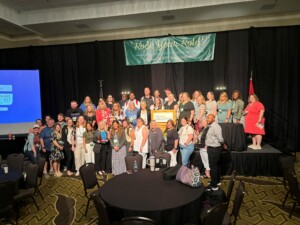
PARK HILL SCHOOL DISTRICT
The Park Hill School District is located in Kansas City, Missouri. The district had 11,972 students served by 884 educators and 56 administrators across buildings and district levels in the 2023-24 school year. Park Hill consists of 14 elementary schools, four middle schools, and two high schools. Park Hill began its districtwide implementation with the support of the Northwest RPDC during spring 2019. While COVID-19 made this work a challenge, the district’s commitment would not let a pandemic derail its efforts. Park Hill has consistently exemplified the ideals, principles, and practices of positive behavior support, demonstrating a firm commitment to improving the lives of students, educators, and the wider community. Through innovative strategies and a relentless focus on fostering a positive school climate, Park Hill has created an environment where every student feels valued, supported, and empowered to succeed. The impact of its efforts has been nothing short of transformative.
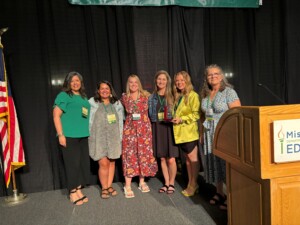
SPRING BRANCH ELEMENTARY SCHOOL — INDEPENDENCE SCHOOL DISTRICT
Spring Branch Elementary is located in Independence, Missouri. The school had 257 PK-5 students served by 23 educators and one administrator in the 2023-24 school year. Spring Branch Elementary is a multiyear MO SW-PBS recognition partner. The school utilizes a number of buildingwide strategies to continuously renew and imp[rove their implementation of schoolwide positive behavior support, including the following: selecting one of the Eight Effective Teaching and Learning Practices to focus on; increasing the efficacy at which it is implemented through teaching, practicing, and reinforcing implementation with all staff; implementing an engagement process to help new students successfully transition and thrive; and planning, adjusting, and implementing tiered supports. Spring Branch Elementary has seen steady decreases in ODRs, improvements in academics, and increases in attendance rates all while fostering a schoolwide climate in which students overwhelmingly report they feel recognized for their strengths, have opportunities to make choices, trust their teachers, and feel safe at school.
Congratulations to the 2023 Dr. Mary Miller Richter Districts and School of Distinction Award Recipients!
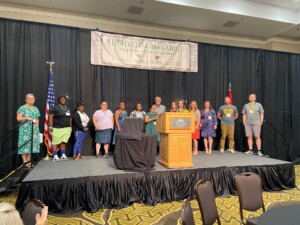
CENTER 58 SCHOOL DISTRICT is located in Kansas City, Missouri and had 2,410 students served by 59 educators and 3 administrators in 2022-2023. Center has taken a multifaceted approach to identifying and supporting student emotional and behavioral needs districtwide. Center implements Tier 1 districtwide with Central Office conducting monthly walkthroughs to monitor fidelity. They are participating in CW-FIT District Coaching Model Study w/ KU.
Center is using a universal screener to identify students who are at-risk and from the results planned and provided numerous additional supports for secondary students including a mentoring program “Elevate KC” and trauma informed group counseling and clinical mentoring programs at the middle school. Through layering Tier 1 foundational supports and advanced tier supports; continually working to create updated staff mindset for and additional alternatives to suspensions and ren-entry systems, and social emotional skills training and supports; and Center is holding monthly DLT meetings and they are using the District systems Fidelity Inventory to guide decision making. From this multifaceted approach Center has seen reductions in disproportionality in OSS and has created a districtwide climate that supports all stakeholders.
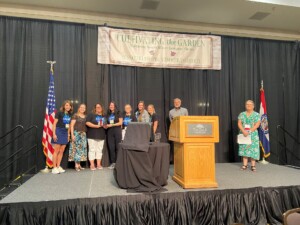
CLARENCE LAWSON ELEMENTARY – JEFFERSON CITY PUBLIC SCHOOL DISTRICT had 433 students served by 37 educators and 3 administrators in 2022-2023. They use data from Big 5, Student Climate Surveys, and student response to Tier 2 and 3 interventions to drive what they do. Clarence Lawson’s ODRs ten years ago were over 400 a year, and now they average less than 150. Their positive referrals ten years ago were just 203, and now they average over 1,000 a year.
Congratulations to the 2022 Dr. Mary Miller Richter Districts and School of Distinction Award Recipients!
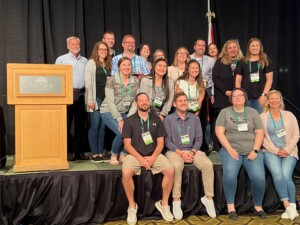
SOUTHERN BOONE COUNTY R-1 SCHOOL DISTRICT serves over 1,800 students and is located in Ashland, Missouri. Building leadership teams (BLTs) within Southern Boone County began a partnership with MO SW-PBS and began implementation in 2006-2007. While each BLT progressed at their own pace, a district leadership team (DLT) formed in 2018-2019 to provide a comprehensive and consistent district wide approach (DW) to positive behavior support. The DLT has been embedded SW-PBS into the CSIP; established 3 core expectations: Safe, Respectful, Responsible and these are implemented from early childhood through twelfth grade; begun development of a DW multi-tiered system of support framework for behavior; and is working to develop a comprehensive data collection system. All BLTs and the DLTs use implementation fidelity (survey and observational data) and outcome data including student disciplinary referrals to drive solution focused dialogue and action planning. Southern Boone County has over the last several years achieved:
- a decrease in the number of students receiving special education services;
- an attendance rate over 90% (with exception of 20-21 at 88% due to pandemic related issues);
- an increase in 4-year graduation rates;
- a decrease in suspensions that has sustained since 2013.
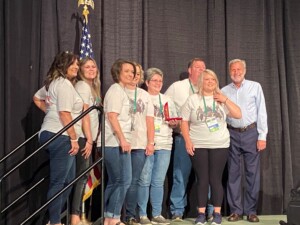
WILLIAM LYNCH ELEMENTARY – SALEM R-80 SCHOOL DISTRICT currently serves 242 students and is located in Salem, Missouri. William Lynch has sustained consistency of expectations and supports across administrative turnover; teachers, administration and parents are on the same page; SW-PBS is so imbedded in the culture teachers cannot imagine teaching without it (i.e., they’ve ditched the clip-charts); and school board members indicate positivity is key with students consistently “receiving the attention they crave without being bad to do so.” William Lynch Elementary is currently implementing SW-PBS Tier 3 Level and has earned Gold Level Recognition multiple years.
Congratulations to the 2020 Dr. Mary Miller Richter Districts and School of Distinction Award Recipients!

Fulton 58 School District is a rural district serving 2362 students in Fulton, Missouri. The first district school began implementing Schoolwide Positive Behavior Support in the 2006-2007 school year. By the 2011-2012 school year, all five district schools were implementing. These five schools have been recognized for exemplary implementation of Schoolwide Positive Behavior Support 37 times for an average of 7.4 times per school! Their hard work has paid off. Since the 2009-2010 school year, the district has decreased the number of behavior incidents resulting in an office referral by 58%! Fewer office referrals means fewer classroom disruptions and more time students spend in class!
“My high school freshman, who has experienced PBIS since kindergarten, informed me that appropriate behavior “is just expected of us” at the high school.” Amy L. Lowe, parent and former employee.
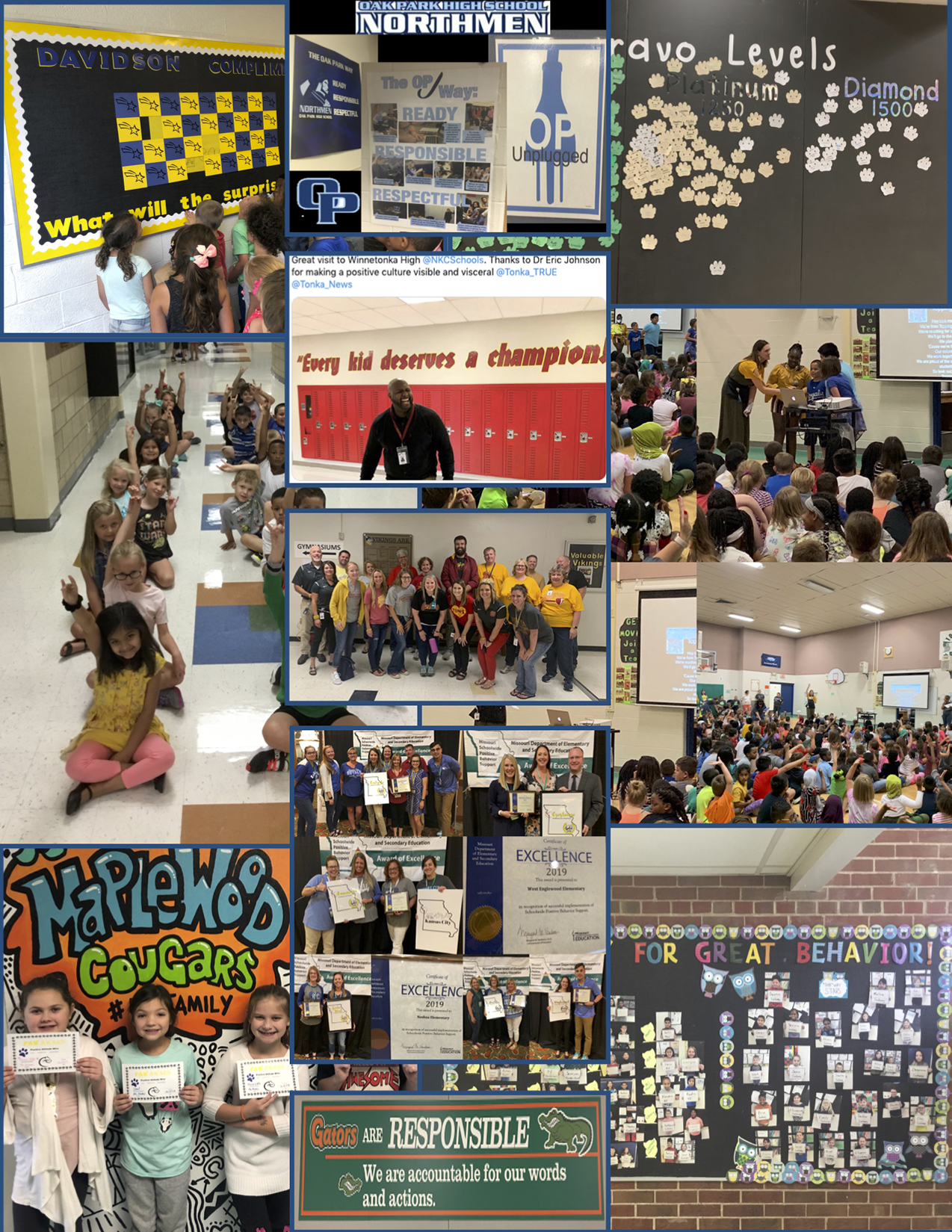
North Kansas City Schools is a diverse suburban school district serving over 21,000 students. In 2008, the district began a phased district-wide adoption of Schoolwide Positive Behavior Support. Since then, North Kansas City Schools have been recognized by Missouri Schoolwide Positive Behavior Support 82 times for their exemplary work with students.
“In particular, North KC Schools has been an exemplary model of the ideals, principles, and practices of positive behavior support. North KC Schools has demonstrated a firm commitment to improving the lives of students, the educators who teach them, and the community in which its schools reside through innovation, creativity, and a firm commitment to partnership,” Tom Petrizzo, Chief Executive Officer, Tri-County Mental Health Services.
Since beginning implementation of Schoolwide Positive Behavior Support, North Kansas City Schools have decreased the number of behavior incidents resulting in office referrals by 33.4%, despite a significant growth in student enrollment during the same time period. As a result, students miss less class time for disciplinary reasons. This may be one reason why the district outpaces other Missouri districts on the state accountability tests.
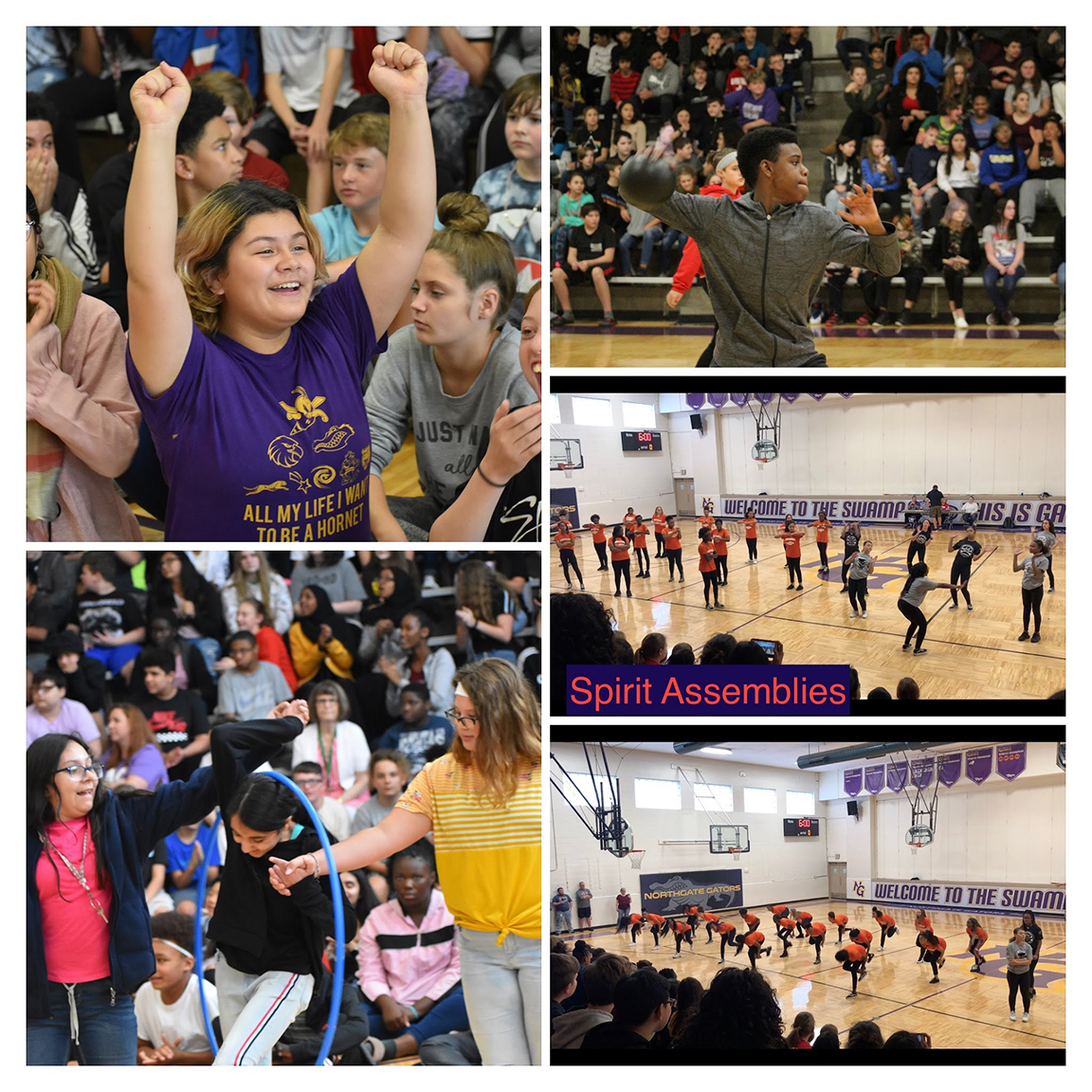
Northgate Middle, North Kansas City Schools
The 2020 Dr. Mary Miller-Richter School of Distinction Award goes to Northgate Middle School in the North Kansas City School District. Northgate Middle is among the most diverse middle schools in Missouri, serving 685 students, 72% of whom qualify for Free or Reduced-Price Lunch. Northgate has developed innovative ways to teach prosocial behaviors to students, reinforce these behaviors, and intervene early with instructional, non-punitive strategies when students struggle to perform the expected behaviors. As a result, they have achieved a significant reduction in incidents resulting in behavioral referrals and student suspensions, improved adult and student relationships, and created a positive learning environment for students.
“The staff have work extremely hard to provide a positive climate that promotes focusing on student strengths and relationship building to continue to enhance the culture of Northgate Middle School.” Dr. Lisa Friesen, District Instructional/MTSS Coordinator and Dr. Janelle Porter, Director of Student Services, North Kansas City Schools
2019 Recipients!
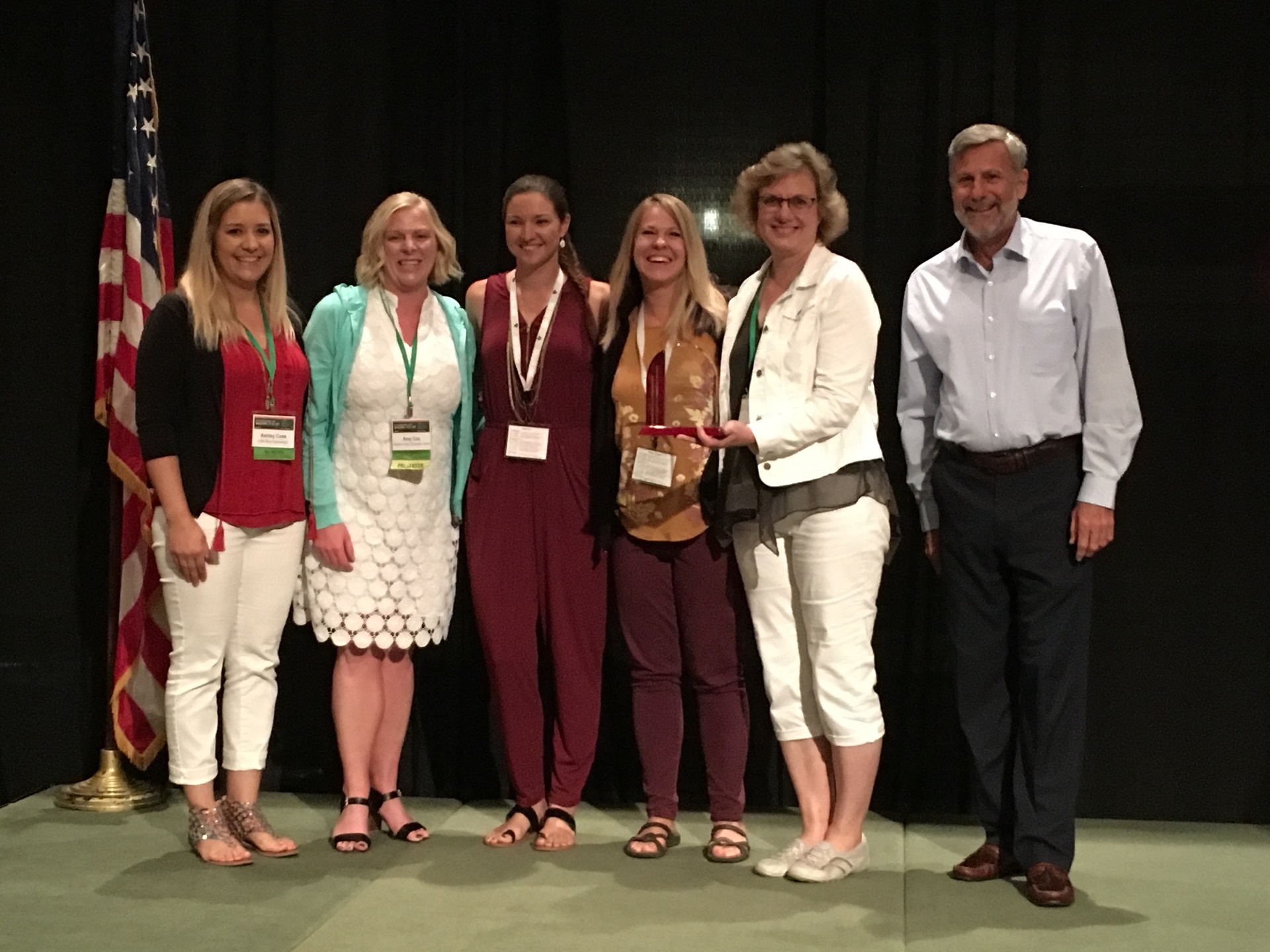
The Independence 30 School District (ISD) is a suburban school district serving of 29 schools serving 15,818 students, 68% of whom qualify for free and reduced-price lunch. The district began their SW-PBS journey during the 2012-2013 school year, and currently has a number of schools that are implementing at all three tiers.
ISD takes a systems approach to implementing SW-PBS. The ISD has established a district leadership team, and has incorporated SW-PBS into their 5-year CSIP. Although SW-PBS is a district-wide initiative, they chose to bring on new schools in three waves, empowering schools to determine which cohort they wished to join. This enabled early adapters to jump in, while allowing schools that had a lot on their plates to layer in SW-PBS training when they were ready. ISD has implemented the Classroom Based Observation Tool (CBOT) to assess implementation of SW-PBS evidence-based practices in classrooms, and use the information to provide feedback and professional learning opportunities to individual staff members. The district has used this and other information to begin the process of identifying team members who are proficient in specific topics or practices. These individuals will be recruited to help build capacity among all Independence 30 School District staff. Finally, the District Leadership Team uses district-wide data to make data-based decisions to improve outcomes for students. For example, they noticed an overall increase in the numbers of Office Discipline Referrals (ODRs). Further analysis indicated that this increase was isolated to a small number of schools that had allowed Tier 1 implementation to slip. The district used this information to provide targeted supports for these specific schools.
As a result of these and other efforts, ISD has increased 90/90 attendance by over 5.8%. They have seen a 17.6% increase in the four-year graduation rate, and a concomitant 4.7% decrease in drop-out rate. In addition, their MSIP5 APR has increased from 73.2% to 97.5% since they first began implementing SW-PBS!
For these and other reasons, the Independence 30 School District has been named the 2019 Mary Miller Richter District of Distinction. Congratulations to the staff of ISD!

Reeds Spring Primary is a K-1 elementary school in the Reeds Spring R-IV School District serving a population that is 61% free and reduced lunch. Since beginning implementation in the 2013-2014 school year, they have decreased the number of Office Discipline Referrals by 59%. Currently, 93% of Reeds Spring Primary students have one or fewer Office Discipline Referrals.
The school uses quantitative and perceptual data to create a positive learning environment and improve outcomes for children. In one example, they reduced bus conduct cards by strengthening the bus expectations, and teaching these expectations to the students during an “assembly” on a school bus. This resulted in a dramatic reduction in bus conduct cards. These efforts have improved safety on the bus for Reed Springs Primary children.
A parent described the climate at Reed Springs Primary as “turning ‘me’ into ‘we.’” Students are taught to “make a difference” by performing “small acts of kindness.”
The students notice, as well. As one first grader put it, “At our school we have to be respectful and we can’t hurt anybody. All the teachers in the school are very nice. I like to hear about everyone’s week-end during den time. Every kid is learning to be nice and we look out for each other.”
The staff at Reed Springs Primary has worked hard to create a safe, caring environment for the children they serve! Reed Springs Primary is truly deserving to be named the 2019 recipient of the Mary Miller Richter School of Distinction!
2018 Recipents
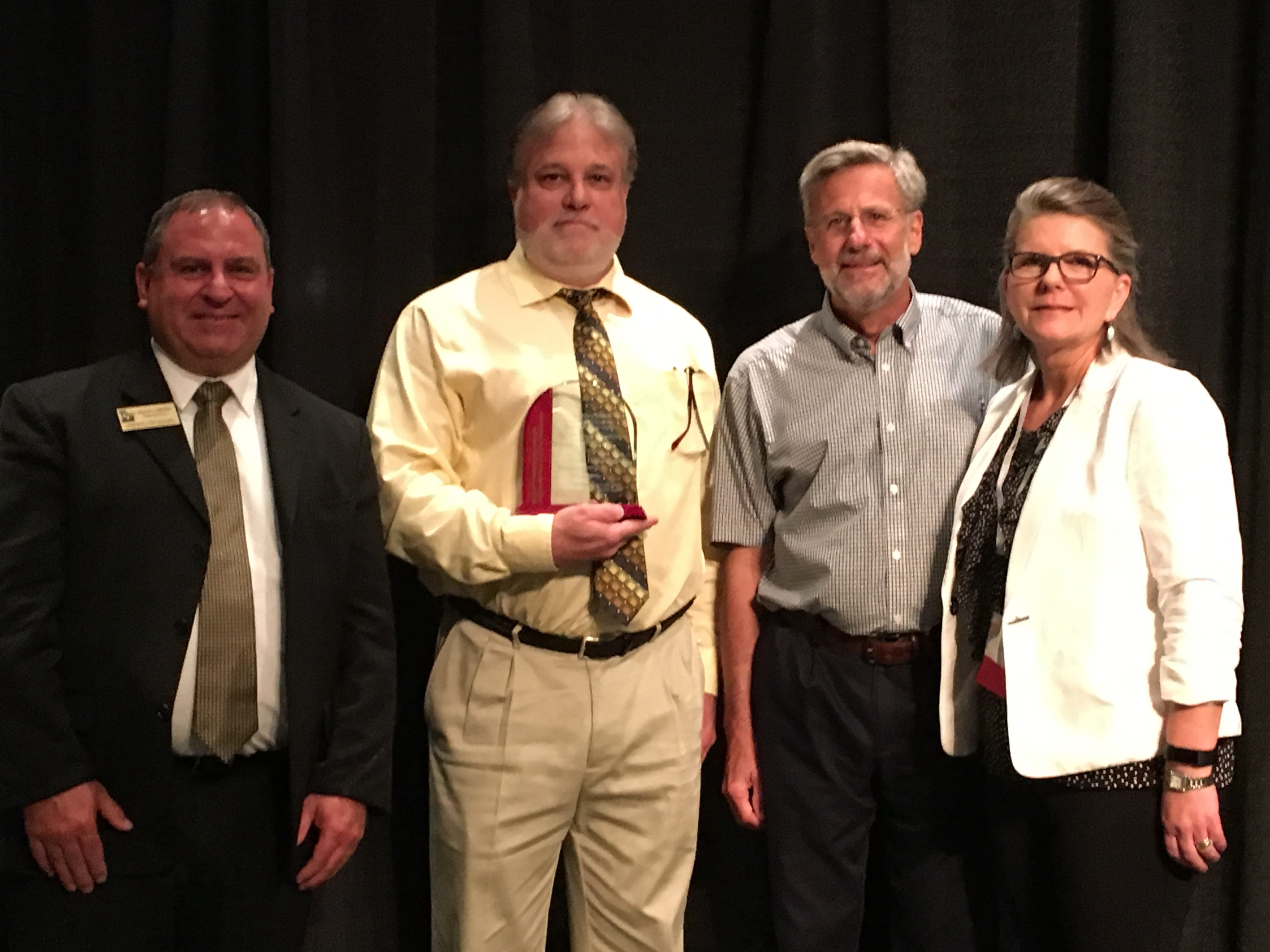
Lebanon High School
Lebanon Senior High School, in Lebanon, Missouri, has been achieving positive outcomes for students since their initial implementation of schoolwide positive behavior supports during the 2007/2008 school year. From this implementation year to 2016-2017, they reduced the number of ODRs by over 60%, and reduced the number of incidents leading to Out of School Suspension by nearly 68%! As of March 31, 2018, 86.05% of students had 0-1 ODRs, 12.9% had 2-5, and 3.49% had 6 or more ODRs.
LHS has achieved these positive outcomes through implementation of a set of evidence-based practices that they have systematized in the Yellow Jacket Code. These practices include ensuring that all students know the schoolwide expectations of Be Safe, Responsible, Respectful, and a Learner. Students are reinforced for following the schoolwide expectations with Buzz Bucks, token reinforcers given out frequently for students caught following the expectations. Students are also recognized with Jacket Grams, which are given for students who have shown dramatic improvement, or who have greatly exceeded academic or behavioral expectations. Both Teachers and students are recognized with STAR (Student/Teacher Appreciation Recognition), and with student of the week and teacher of the week. Finally, teachers who are caught implementing a PBIS practice are recognized with Lowery Loot. Lebanon consistently addresses inappropriate behavior with clearly defined behaviors, decision rules, and standard strategies for addressing these behaviors.
Students who need additional academic and behavioral supports are provided with Tier 2 or Tier 3 interventions. Tier 2 behavioral supports include Check-in/Check-out and LINK (an adaptation of Check and Connect). Tier 3 supports include FBA/BIP.
Lebanon Senior High School Supports adults in their implementation of these practices, and communicates their SW-PBS plans to all stakeholders through their website and Teacher Handbook.
Lebanon Senior High School has received state and national attention for their implementation of SW-PBS since their first year of implementation! They are a 5 time MO SW-PBS Silver level recognition school, and a 6 time Gold level recognition school. This year, they were the only high school to earn the 10+ recognition for schools that have earned recognition and sustained exemplary implementation for 10 or more years. In addition, in 2009, they were held up as an exemplar of high school implementation by the PBIS National Technical Assistance Center with their inclusion in High Schools: Current Practice and Future Directions (A.K.A. The High School Monograph, Flanner and Sugai , 2009).
Lebanon Senior High School has long been recognized as one of the premier secondary implementers of SW-PBS in the state of Missouri. They are considered a model demonstration site by the state, and frequently host visitors from other cities and states who wish to learn from their success. For these reasons and more, Lebanon Senior High School Missouri SW-PBS’s highest honor: the 2018 Dr. Mary Miller Richter Award!
2017 Recipents
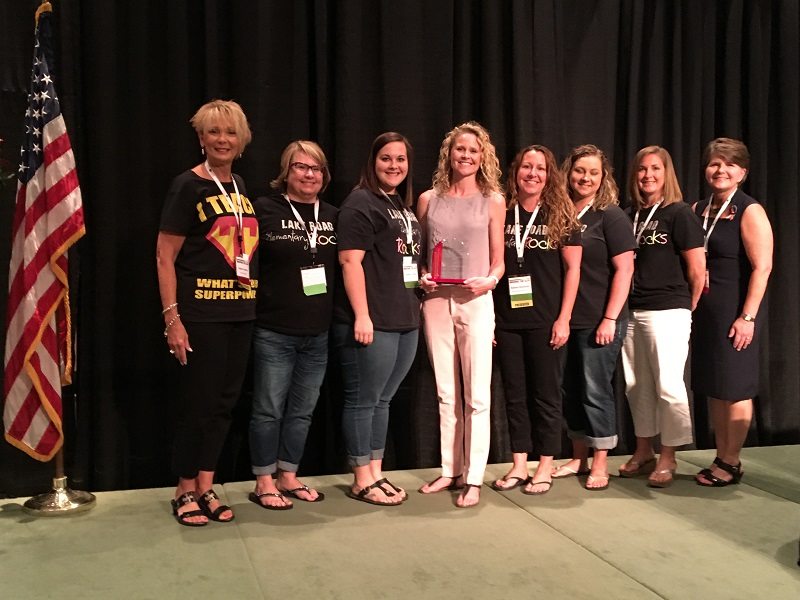
Lake Road Elementary
Lake Road Elementary in the Polar Bluff R-I School District has been implementing SW-PBS for 7 years. They originally began SW-PBS because staff were spending an inordinate amount of time addressing problem behaviors. Since beginning their implementation, Office Discipline Referrals have decreased by 85%. Student attendance has increased by 11 percentage points. This increase in student time in the classroom and the decrease in problem behaviors has likely contributed to a 46.7 and 22.2 percentage point increases in the numbers of students scoring proficient and advanced in Communication Arts and Mathematics sections of the Missouri Assessment Program (MAP) test, respectively. Finally, staff retention has also increased since the school began implementing SW-PBS, suggesting that the school has become a nicer place to learn and work. Congratulations to the staff and students of Lake Road Elementary, the 2017 recipients of the Mary Miller Richter Award of Excellence.
2016 Recipents
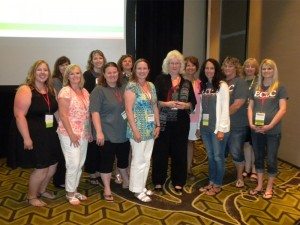
Kirksville R-III School District
The Kirksville R-III School District has been implementing SW-PBS for over 10 years. Schools provide students with universal, targeted and intensive supports. District-wide, Office Discipline Referrals decreased dramatically during the first two years of implementation, and have held steady ever since. Indeed, Office Discipline Referrals for the 2015-2016 school year are only 23% of what they were when the district initially adopted SW-PBS.
The Kirksville Early Childhood Learning Center (ECLC) has been at the cutting edge of SW-PBS implementation in the state of Missouri, and provides a model for other Missouri schools in terms of SW-PBS implementation, stakeholder engagement, and presenting at National Conferences.
Congratulations to Kirksville R-III school district, winner of the 2016 Mary Miller Richter District of Distinction Award.
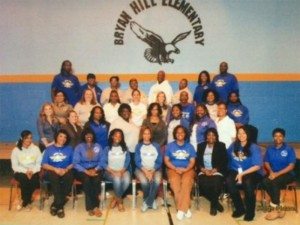
Bryan Hill Elementary
Bryan Hill Elementary in the St. Louis City School District has been participating in MO SW-PBS since the 2012-2013 school year. Currently implementing at Tiers 1 and 2, Bryan Hill has experienced significant decrease office referrals. Since implementing Tier 2 supports in the 2015-2016 school year, the number of Office Discipline Referrals has decreased by 17%, the number of students responding to universal supports has increased from 85 to 90%, and the number of out of school suspensions have decreased 56% These improvements have likely contributed to increases in both staff and student attendance. For these and other many other reasons, Bryan Hill Elementary is the recipient of the 2016 Mary Miller Richter School of Distinction Award.
2015 Recipents
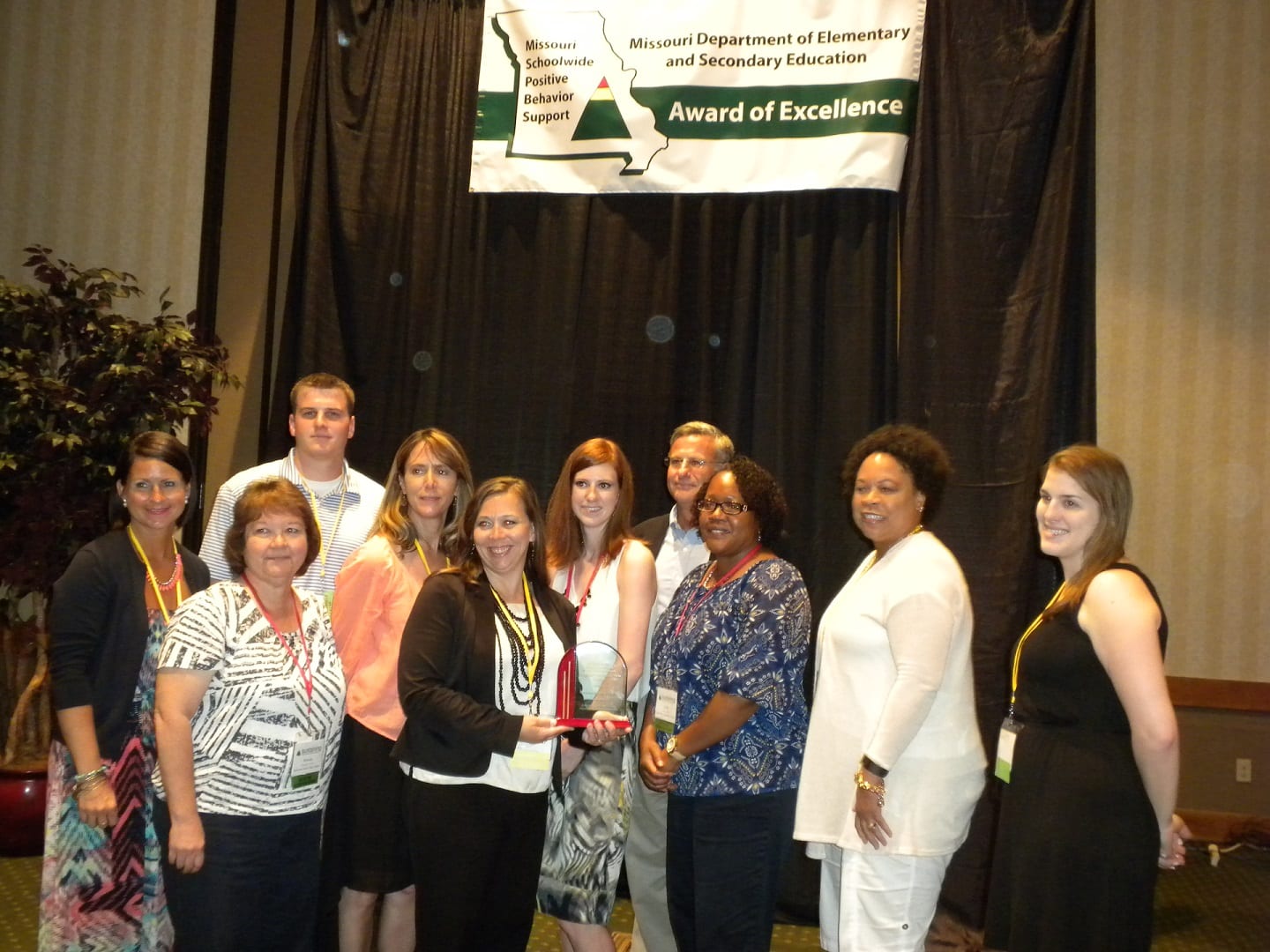
The Raytown School District
The Raytown C-2 School District, recipient of the 2015 Dr. Mary Richter Award for Exemplary School District, is an example of district-level PBIS implementation. Beginning in the 2010-11 school year, the district took the first year just to study PBIS. The following year, all schools had 80% buy-in and began training through MO SW-PBS.
The district leadership team includes building and district administrators, the Guidance Coordinator, Director of Student Support Services, Community Relations Director, and representation from the Transportation Department. The group meets five times per year to analyze data, plan supports for schools, and provide communication for the community. Communications include posting information on the district website, creating a district PBIS brochure, and developing a PBIS fact sheet with parent tips.
Professional development funds and time are available for school teams to attend trainings at the Tier 1 and Tier 2 levels. Time is allocated at the building level for teams to train staff during Professional Development “Early Out” Wednesdays. The district leadership also makes it a priority to send representatives from each building to the annual MO SW-PBS Summer Training Institute.
As a result of district-level implementation, in-school and out-of-school suspensions have decreased across the district. During the past three years, in-school suspensions have decreased from over 8,000 to under 3,000.
A consultant who has worked with the Raytown district states, “I have always been impressed by the top down/bottom up approach that the district takes. Examples of system-wide decisions include purchasing SWIS for all schools, training in-house SWIS facilitators, and adopting a district-wide Office Discipline Referral form.” The Raytown district leadership team provides consistency for system-wide sustainability while giving schools the flexibility to make SW-PBS unique for their individual contexts.
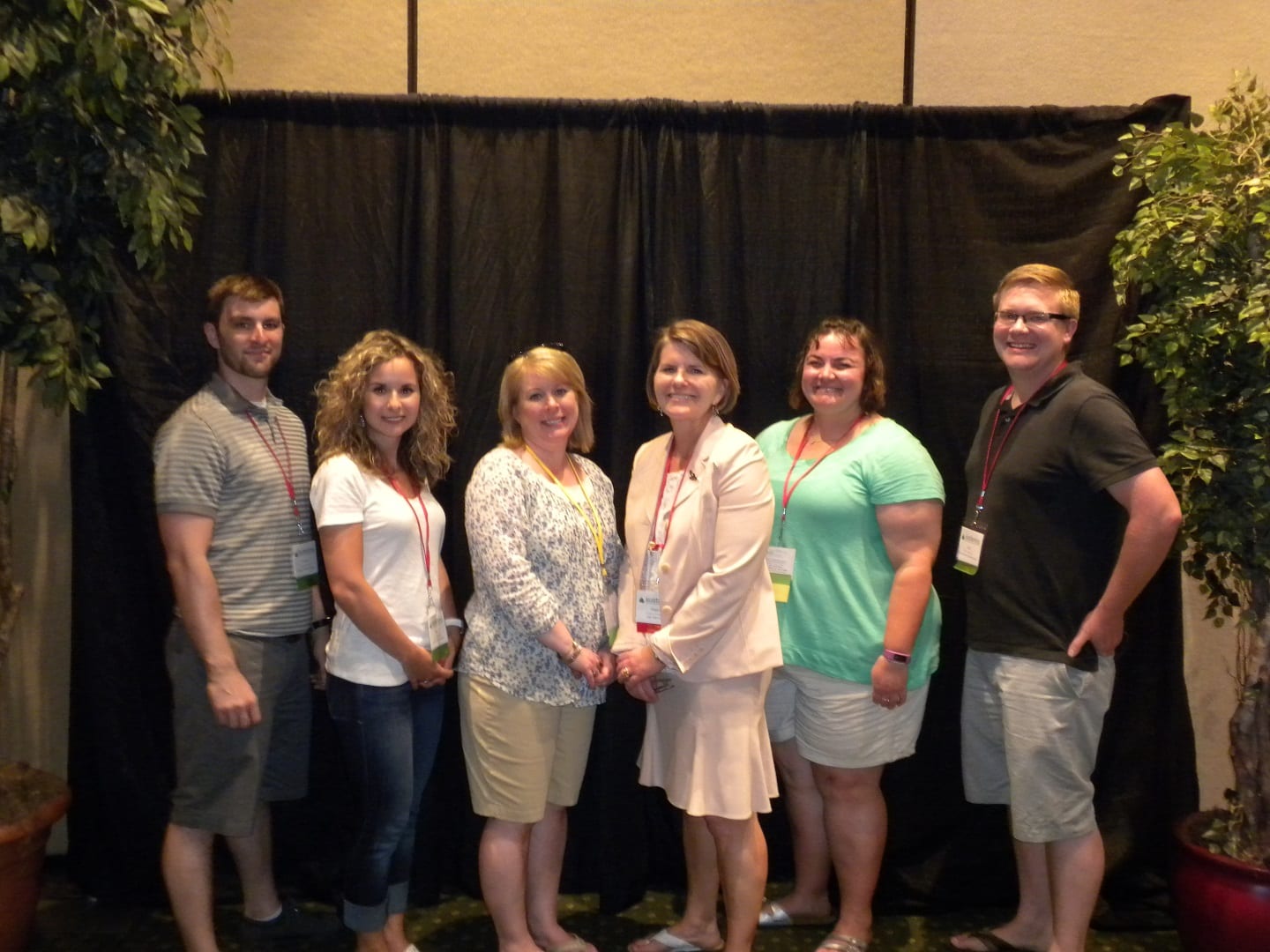
Saeger Middle School
10 years ago, Saeger Middle School logged an astounding 2,458 discipline incidents, including 96 out-of-school suspensions. Test scores were low, as was attendance.
After implementing SW-PBS for 9 years, Saeger has reduced office referrals to just 162! This represents a 93% reduction v in ODRs since implementation began. In addition, Saeger has experienced an improvement in scores on the Missouri Assessment Program state accountability tests, as well as in student attendance. They attribute much of these gains to implementing a three-tiered model of support for students.
Saeger has reached out and assist other schools that struggle with behavior and learning. They have opened their doors to schools in the Francis Howell School District, as well as outside of their district. In addition, they have presented at Summer Institute for seven times, with presentations on “bumps” along our journey and how to overcome them, practical advice for thwarting students from reaching tiers 2 and 3, and how to engage your entire school community in SW-PBS. Twice they have presented at the St. Louis area EdPlus Best Practices conference, and have been featured in the local newspaper celebrating their success.
2014 Recipents
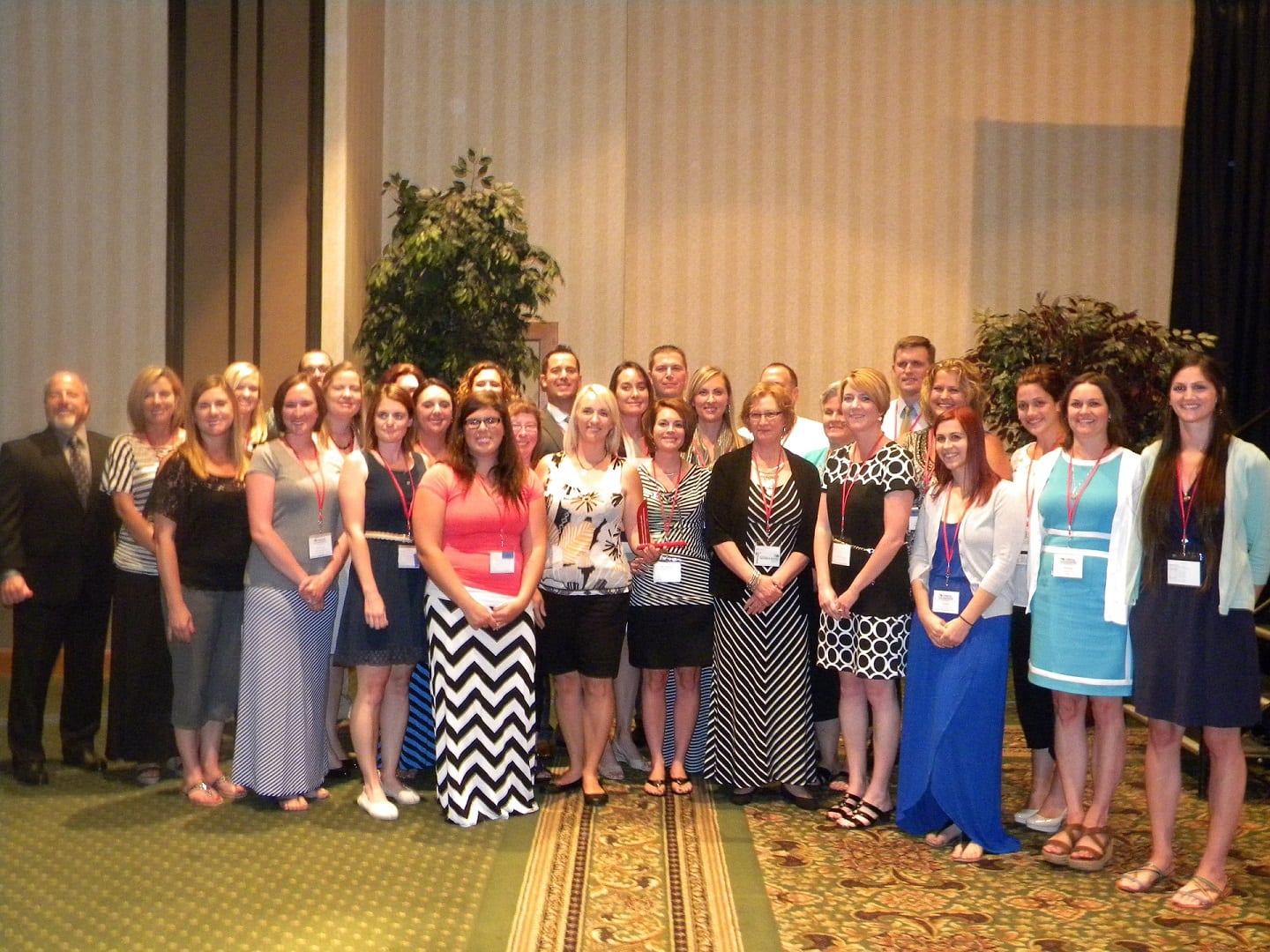
Excelsior Springs School District
In creating a climate of high expectations, Excelsior Springs School District leaders have continuously championed and supported the implementation of SW-PBS in all five district schools. This commitment to SW-PBS has remained unwavering over time as district personnel has changed.
To promote cohesiveness and continuity across the district, all five schools adopted the same expectations for their students: Go Safely, Show Respect, and Be Responsible – The GRR Expectations for the Excelsior Springs Tigers, grades K-12. While each school completed its matrix based upon its context, the expectations are the same no matter when you go in Excelsior Springs.
A sampling of unique SW-PBS features include:
The high school schedule includes a 32-minute intervention block known as Extended Learning Time, or ELT. During ELT, schoolwide social/behavioral lessons are taught to all students, and targeted Academic Check-in/Check-out ELT is scheduled for students identified as needing Tier 2 support.
The Transfer Student Induction Model (TSIM) ensures that every new middle school student quickly develops a positive relationship with at least one trusted adult whenever they enroll in the school. Students receive an initial overview of SW-PBS and are assigned a trained WEB (Where Everyone Belongs) student leader. An administrator teaches the schoolwide social skills lessons over a five day period, and an administrator or counselor meets informally with the student at 2, 4, 8, and 12 weeks. During these meetings, academic and behavior data is checked and additional supports are put in place if data indicates a need.
Features at the three elementary schools include parents being on the Tier 1 team, students recognizing their peers with “Peer Paws”, established schedules for ongoing PBIS staff development, and protected schedules for the teaching of schoolwide lessons with administrators conducting fidelity checks.
A quote from an Excelsior Springs High School student conveys the changes he has seen due to SW-PBS: “At ESHS, I feel the atmosphere has changed greatly within the last three years I have been here . . . . The respect between staff members and students has increased greatly! . . . The positivity overall has shot through the roof.”
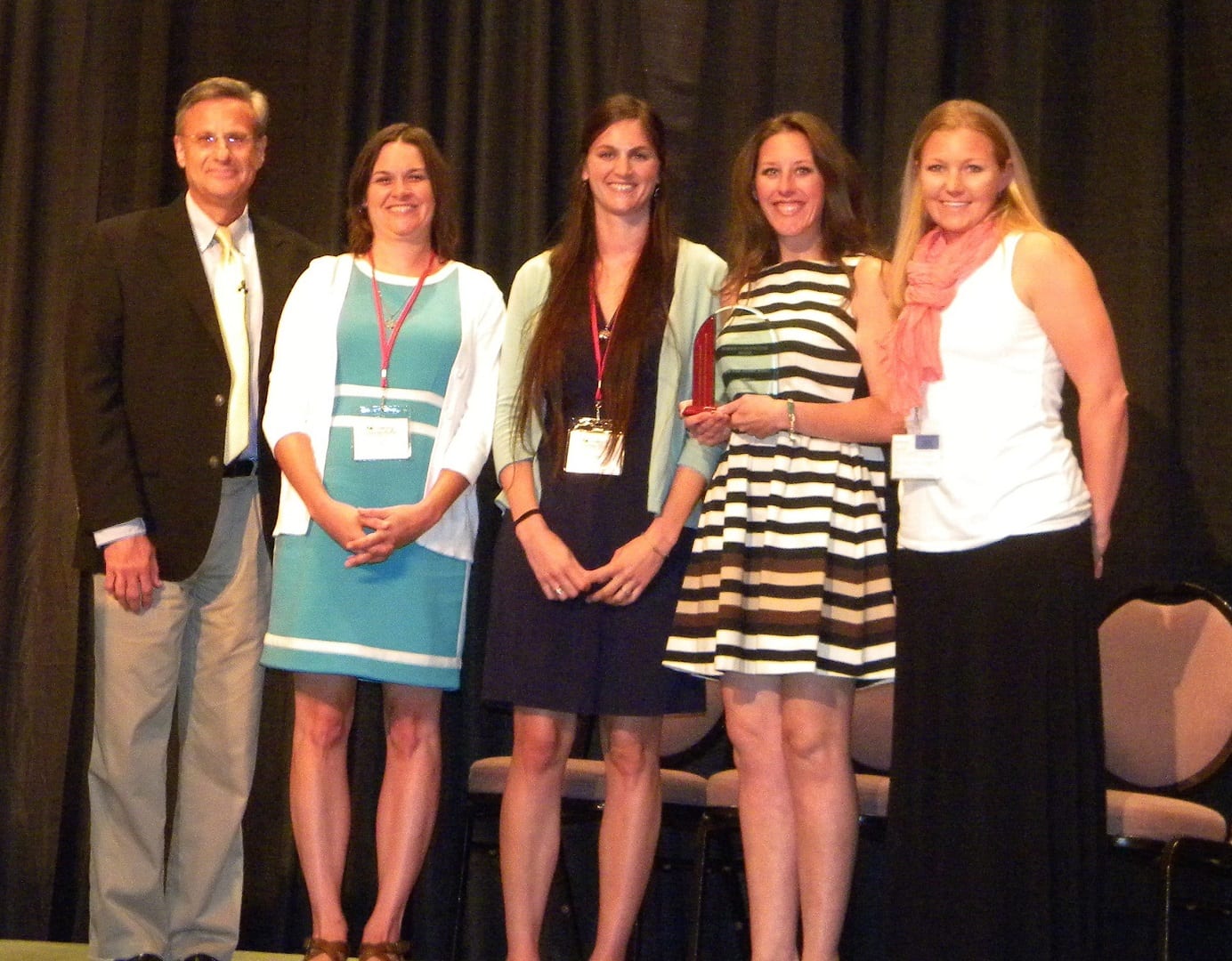
Maple Park Middle School
Maple Park Middle School has created a “Student Fidelity Check” that is a systematic part of their process for identifying students for possible Tier 2 support. This check helps to ensure, from the perspective of the student, that he/she has received Tier 1 with fidelity.
The survey asks the student to respond to questions such as:
- I know the three school rules.
- My teacher(s) have taught me about the three school rules.
- The rules in my classes reflect the three school rules.
- My teacher(s) have taught me about the three school rules when it comes to: classroom, hallway, restroom, bus, and auditorium.
As part of the survey, students share how many Viking Vouchers they have received, what they were for, and which teachers have recognized them with a Viking Voucher. The students also list three adults in the school with whom they have good relationships.
Like many secondary schools, Maple Park struggled with making Small Group Social Skills lessons meaningful for students. This past year, they revised the intervention to include a service learning component that provides students with the opportunity for real-life social skills application while creating and implementing a service learning project of the group’s selection.
The group meets twice a week after school, and two staff members are facilitators. Each meeting begins and ends with the teaching and review of the social skills lessons. After the initial lesson, the group works on their service learning project while the facilitators monitor and provide feedback on student use of appropriate social skills. Progress monitoring data is recorded daily by each classroom teacher, and parents receive weekly communication.
Student graduation from the Social Skills group is high, and data confirms that students are maintaining use of the social skills after graduation. A quote from one student mirrors those of other participants: “SGSS has taught me how to be more respectful to others and to think before I answer. Before SGSS I had a lot of office referrals and was rude and disrespectful to my teachers. Now they have told me that they have noticed improvement. I am glad I have improved with my behavior and so proud of our SGSS group raising over $300 to help find a cure for cystic fibrosis and leukemia.”
